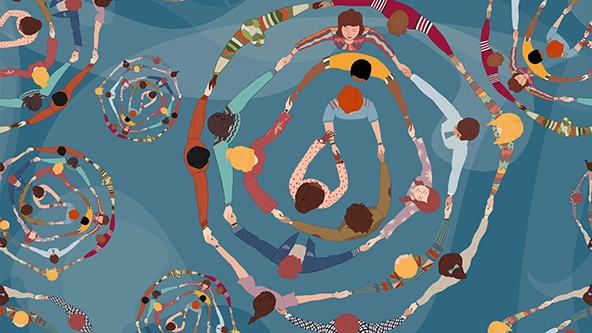Relational Healing: Transforming Men’s Mental Health in Sydney
Healing is a deeply personal journey, yet one universal truth prevails: the profound role of relationships in fostering emotional and psychological growth. Gabor Maté, a renowned expert in trauma and addiction, highlights that human beings are wired for connection and that true healing often takes place within the context of meaningful relationships — not in isolation.
At Counselling and Psychotherapy Services for Men in Sydney, Christian Acuña aligns with this belief. Drawing from psychology, neuroscience, and peer-reviewed research, Christian has witnessed how healing occurs through the safety of the therapeutic relationship. This blog delves into how relational healing empowers men to grow and transform.
The Foundation: Humans as Social Beings
From birth, human beings are inherently relational creatures. Neuroscience confirms that our brains are wired for connection, with mirror neurons facilitating empathy and social bonding (Iacoboni, 2009). The attachment theory developed by John Bowlby (1969) underscores the importance of early relationships with caregivers, which shape our ability to form secure attachments throughout life. When these early bonds are disrupted or traumatic, the ripple effects often manifest as emotional dysregulation, low self-esteem, or relational struggles.
However, these same relational dynamics hold the key to healing. Studies on attachment theory suggest that healthy, secure relationships in adulthood can provide a corrective emotional experience, enabling individuals to rewire maladaptive patterns and develop healthier relational templates (Siegel, 2012).
Trauma and the Role of Relational Healing
Trauma often stems from relationships—whether through neglect, abuse, or betrayal. As Maté emphasises, “Trauma is not what happens to you; it’s what happens inside you as a result of what happens to you.” These internal wounds, often rooted in relational dynamics, can only be healed through relational repair.
For many, these wounds are tied to insecure attachment styles, which develop during early childhood based on inconsistent, neglectful, or overly critical caregiving. Insecure attachment often manifests as fear of abandonment, difficulty trusting others, or a reluctance to express vulnerability. When someone with an insecure attachment encounters a securely attached individual—a person who projects kindness, safety, and nonjudgmental acceptance—they may feel both drawn to and apprehensive about the experience.
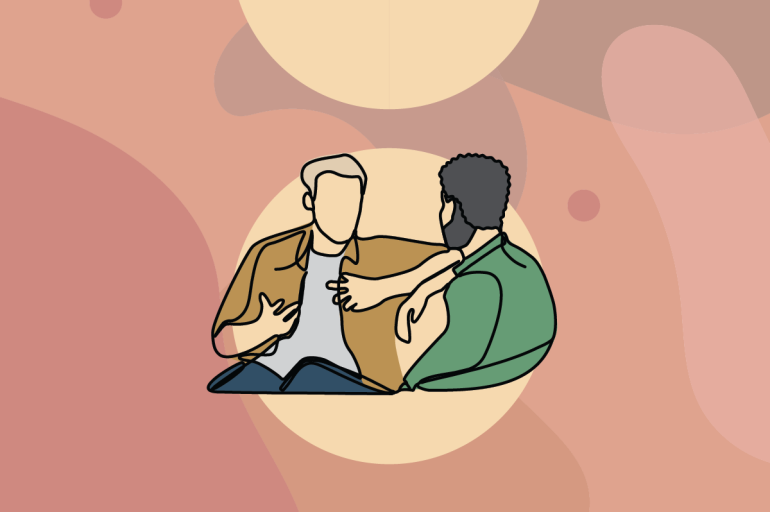 Research highlights that secure relationships provide an ideal environment for healing attachment wounds. A securely attached partner can model healthy emotional regulation, foster open communication, and create a space where vulnerability feels safe rather than threatening. For an insecurely attached individual, learning to embrace such a relationship involves both trust and bravery. Being vulnerable in the presence of someone who demonstrates unconditional acceptance helps dismantle fears of judgment or abandonment. Over time, these interactions can rewire attachment patterns, allowing for deeper emotional connections and a sense of security.
Research highlights that secure relationships provide an ideal environment for healing attachment wounds. A securely attached partner can model healthy emotional regulation, foster open communication, and create a space where vulnerability feels safe rather than threatening. For an insecurely attached individual, learning to embrace such a relationship involves both trust and bravery. Being vulnerable in the presence of someone who demonstrates unconditional acceptance helps dismantle fears of judgment or abandonment. Over time, these interactions can rewire attachment patterns, allowing for deeper emotional connections and a sense of security.
A recent study published in the journal Attachment & Human Development (2021) explored how secure relationships help mitigate the effects of early attachment trauma. The findings indicate that consistent, supportive interactions with a securely attached individual can significantly reduce symptoms of anxiety, depression, and fear of rejection, fostering emotional resilience and healthier relational patterns.
Being brave, then, means allowing oneself to lean into vulnerability—choosing to trust and connect with the right person. This is not about losing oneself but finding the courage to heal through the safety and consistency of a secure relationship. With the right guidance, whether through a secure partner or therapeutic support, this journey becomes a transformative act of reclaiming emotional balance and connection.
Peer-reviewed research in trauma therapy highlights the importance of attunement, empathy, and co-regulation in healing. A 2020 study published in Psychological Trauma: Theory, Research, Practice, and Policy found that therapeutic relationships characterised by trust, safety, and empathy were central to recovery from complex trauma. This aligns with Maté’s assertion that healing is a relational process where individuals rediscover their sense of safety and connection in the presence of another.
The Science of Co-Regulation
Co-regulation—the process of regulating emotions through connection with another—is a cornerstone of relational healing. When we are distressed, the presence of a calm, empathetic other can help soothe our nervous system. Research in polyvagal theory by Dr. Stephen Porges (2011) demonstrates that our autonomic nervous system responds to cues of safety or danger in our environment, particularly in relationships.
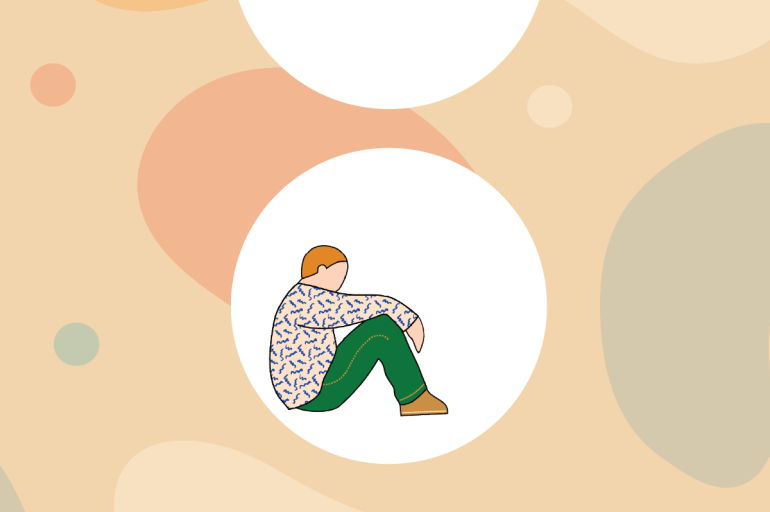 Co-regulation plays a critical role in addressing rumination and the relentless false scripts that often accompany insecure attachment patterns. Through co-regulation, the nervous system learns to shift from states of hyperarousal (fight or flight) or hypoarousal (freeze) into a state of calm and connection. This process is essential for healing anxiety, depression, and post-traumatic stress disorder (PTSD), as well as breaking free from unhealthy emotional cycles tied to attachment wounds. In these safe, attuned relationships—whether with a therapist or a securely attached partner—the brain and body begin to rewire and find balance, laying the foundation for healthier emotional processing.
Co-regulation plays a critical role in addressing rumination and the relentless false scripts that often accompany insecure attachment patterns. Through co-regulation, the nervous system learns to shift from states of hyperarousal (fight or flight) or hypoarousal (freeze) into a state of calm and connection. This process is essential for healing anxiety, depression, and post-traumatic stress disorder (PTSD), as well as breaking free from unhealthy emotional cycles tied to attachment wounds. In these safe, attuned relationships—whether with a therapist or a securely attached partner—the brain and body begin to rewire and find balance, laying the foundation for healthier emotional processing.
Rumination often arises from unresolved emotional cycles linked to childhood attachment wounds. When a relationship feels familiar to these early patterns—such as seeking validation from an emotionally unavailable or critical partner—it can create a false sense of safety. This perceived familiarity triggers persistent, circular thoughts and a desperate need to “solve” or “fix” the relationship, even when it’s toxic. The nervous system unconsciously tries to resolve unmet needs from the past by seeking closure or healing in present dynamics that echo those early wounds. This cycle keeps individuals trapped in toxic relationships, tethered to insecure bonds that perpetuate pain.
At Christian Acuña’s clinic, therapeutic work focuses on disentangling these unhealthy connections. Through the process of compassionate exploration and co-regulation, clients learn to recognize the unconscious pull toward toxic or emotionally unsafe partners. Therapy helps distinguish these patterns from true, secure connections. By identifying what genuinely supports the nervous system and emotional well-being, clients can begin to heal and shift toward relationships where vulnerability, safety, and mutual growth are genuinely possible.
Peer-Reviewed Research and Therapy
Peer-reviewed research published in Clinical Psychology Review (2020) highlights the effectiveness of therapeutic interventions that emphasise attachment repair and co-regulation in reducing rumination and maladaptive emotional cycles. By understanding the nervous system’s role in perpetuating unhealthy bonds, therapy facilitates the rewiring of these patterns, enabling individuals to choose partners who align with their healing and growth.
This transformative process empowers clients to break free from cycles of toxic attachment, moving toward relationships where trust, emotional safety, and co-regulation foster genuine intimacy and healing. Instead of feeling trapped in unresolved narratives, individuals develop the clarity and resilience to recognise and embrace connections that truly support their well-being.
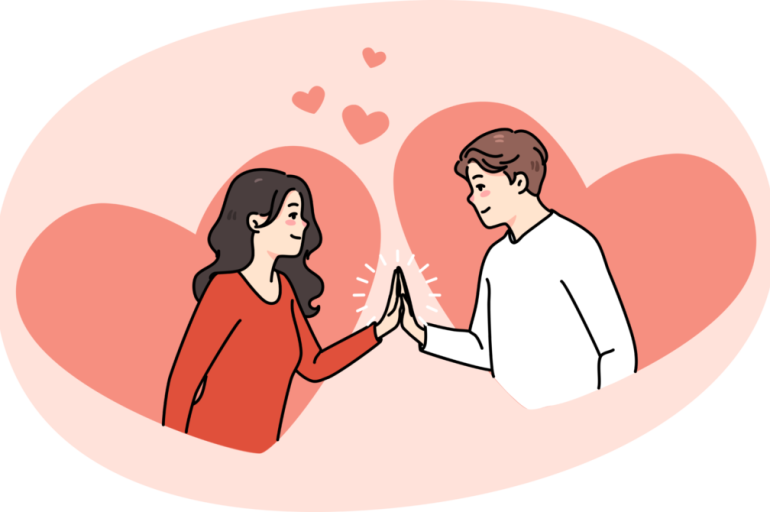 Why Healing Requires Relationships
Why Healing Requires Relationships
Maté and other trauma experts argue that healing requires a relational context because it is within relationships that our deepest wounds—and thus, our greatest opportunities for growth—are revealed. For instance:
Attachment Repair: Secure relationships provide a safe space to explore and repair attachment wounds. A meta-analysis published in Clinical Psychology Review (2018) found that emotionally focused therapy (EFT) significantly improves attachment security in couples and individuals.
Mirror of Self-Worth: Healthy relationships act as mirrors, reflecting our inherent worth and challenging internalised shame or self-criticism. Research published in the Journal of Counseling Psychology (2019) highlights how relational feedback within therapy fosters self-compassion and personal growth.
Accountability and Growth: Relationships challenge us to confront and transcend our habitual patterns. For example, relational dynamics often illuminate blind spots, providing opportunities for self-awareness and transformation.
Therapeutic Relationships as a Model for Healing
At Christian Acuña’s clinic in Surry Hills, the therapeutic relationship serves as a vital framework for relational healing. Drawing on principles like Carl Rogers’ concept of unconditional positive regard (1957), Christian creates a judgment-free, empathetic environment where clients feel seen, heard, and supported. Research consistently underscores that the quality of the therapeutic alliance is one of the strongest predictors of positive outcomes in psychotherapy (Horvath & Greenberg, 1989), and this belief forms the foundation of Christian’s approach.
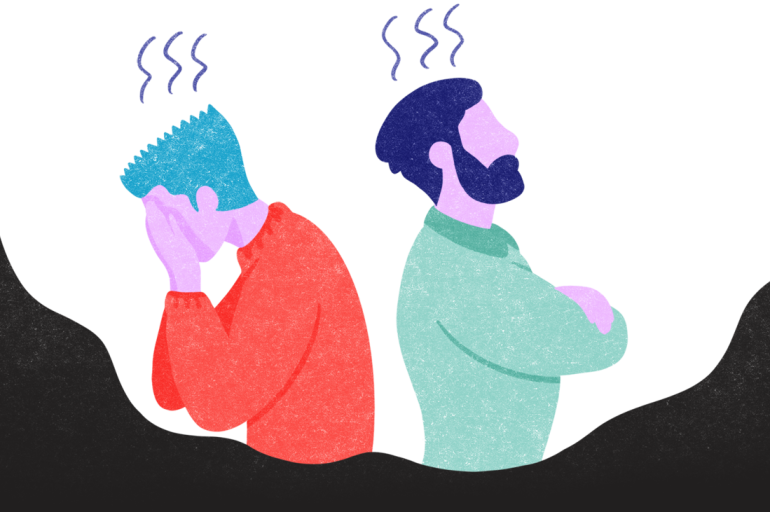 Through therapy, clients gain the opportunity to explore their emotions, fears, and vulnerabilities in a space where they are met with compassion rather than rejection. This corrective experience not only fosters understanding of their behaviours but also provides practical skills to navigate their challenges. By addressing the root causes of emotional struggles and equipping clients with tools to break unhealthy cycles, therapy helps rewire neural pathways and establish healthier relational patterns.
Through therapy, clients gain the opportunity to explore their emotions, fears, and vulnerabilities in a space where they are met with compassion rather than rejection. This corrective experience not only fosters understanding of their behaviours but also provides practical skills to navigate their challenges. By addressing the root causes of emotional struggles and equipping clients with tools to break unhealthy cycles, therapy helps rewire neural pathways and establish healthier relational patterns.
At Counselling and Psychotherapy Services for Men in Surry Hills, Christian combines compassionate inquiry with actionable strategies to empower his clients. The goal isn’t just to understand what is happening but also to develop the resilience and clarity to move forward. Within this compassionate and supportive environment, clients discover a path toward authentic growth, deeper self-awareness, and meaningful connections that extend beyond the therapy room.
Practical Implications: How to Heal Within Relationships
- Prioritise Relationships That Nurture Your Growth: Seek relationships where you feel genuinely seen, heard, and valued. These can be with a therapist, a trusted friend, or a partner who fosters emotional safety and provides a secure space for you to be yourself. When it comes to vulnerability, especially if it feels unfamiliar or daunting, it’s natural to feel hesitant. But if you sense that this person is kind, good, and genuinely cares for you, take the courageous step to open up. Even if it feels scary, leaning into vulnerability with someone who truly values and loves you can be transformative. You are not alone in this journey — I am here to support and guide you every step of the way as you navigate this unfamiliar yet empowering path toward growth and connection. Together, we’ll build the tools and trust you need to embrace these meaningful relationships.
- Engage in Relational Practices: Practices such as active listening, empathetic communication, and vulnerability can deepen connections and create opportunities for healing.
- Explore Attachment Patterns: Understanding your attachment style can illuminate how your relational history shapes your current dynamics. Therapy can help you shift from insecure to secure attachment patterns.
- Foster Self-Compassion: Practices like mindfulness and self-compassion exercises can complement relational healing.
Conclusion: Healing Is a Shared Journey
As Maté wisely points out, we cannot heal alone. While individual work is valuable, it is within relationships that we find the safety, connection, and co-regulation needed to truly transform. Whether through therapy, friendships, or partnerships, relational healing allows us to rewrite our narratives, rebuild trust, and embrace a life of authenticity and connection.
Contact Information. Take the First Step:
If you’re ready to explore relational healing, consider reaching out to a qualified therapist who can guide you on this transformative journey. Remember, the path to healing is not meant to be walked alone — it is a shared journey, and the first step begins with connection. Healing is a shared journey. Whether through therapy, friendships, or partnerships, relational healing rewrites narratives, rebuilds trust, and fosters connection.
To explore how relational healing can transform your mental health, visit Christian Acuña’s clinic in Sydney. Book your session today and start your journey toward meaningful growth and healing.
- Phone: 0415237494
- Email: info@counsellingformen.com.au
- Location: Surry Hills, Sydney
- Website: www.counsellingformen.com.au
This video will help you understand the importance of healing with a securely attached person instead of fearing them, and the benefits of therapy in fostering this understanding.

